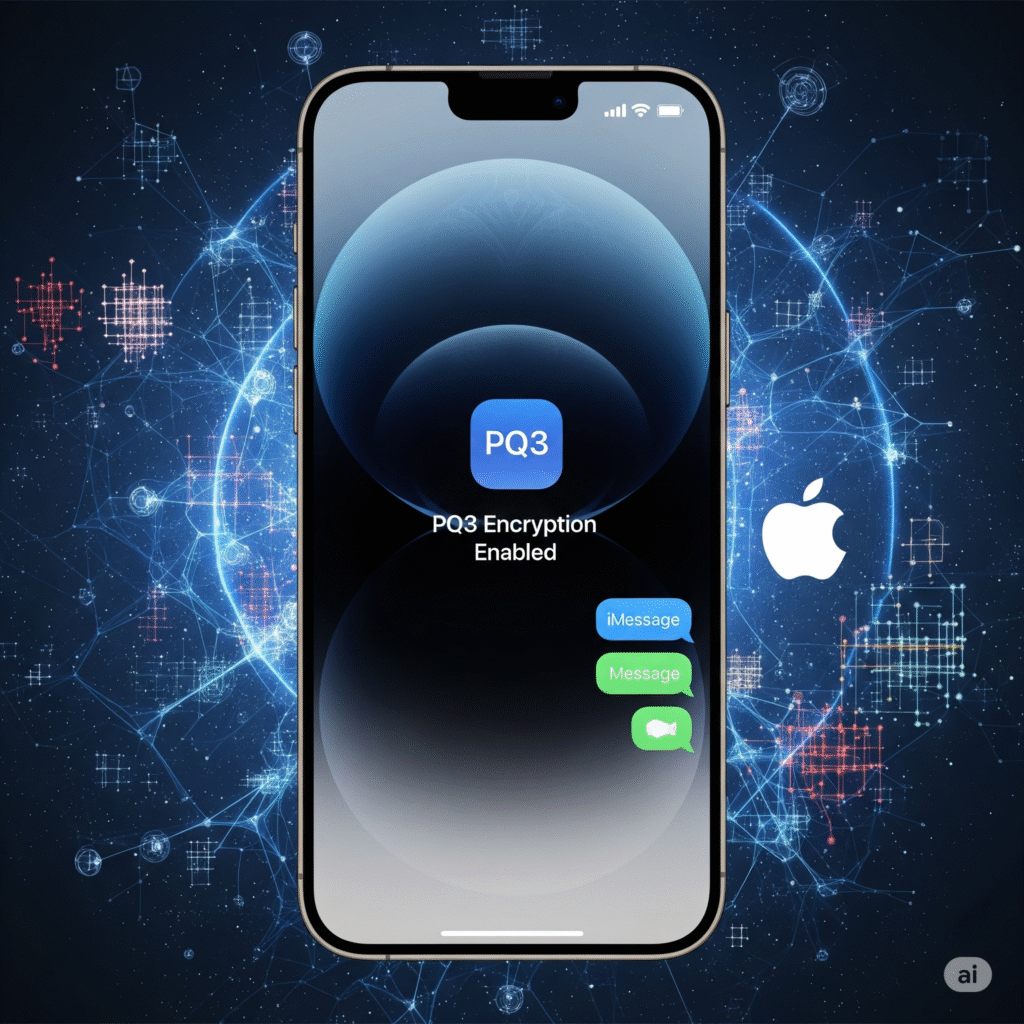July 6, 2025, Cupertino Apple has introduced quantum-resistant encryption to iMessage, becoming the first major consumer tech platform to deploy post-quantum protections at scale. The upgrade will be included with iOS 19, set to roll out later this month, and will secure communications against future quantum computing decryption capabilities.
The system uses a new protocol known as PQ3, which Apple developed in collaboration with cryptographers and submitted to NIST for evaluation earlier this year.
How PQ3 Encryption Works
PQ3 combines classical elliptic curve cryptography with quantum-resistant lattice-based algorithms like Kyber-1024. Each iMessage exchange generates dual-layer key material, stored only on the devices involved in the conversation. If a future quantum computer attempts to decrypt intercepted traffic, the PQ layer prevents compromise.
The encryption upgrade is fully backward compatible with current iMessage threads, and does not affect battery life or app speed.
Why It Matters
Cybersecurity experts warn that nation-state actors are already archiving encrypted messages in the hope of decrypting them when quantum hardware becomes viable. Apple’s move is aimed at preventing this kind of “store now, decrypt later” attack pattern.
“Apple is setting a new bar for proactive encryption,” said Rhea Mitchell, senior analyst at the Center for Quantum Security. “This helps protect user data not just today, but for decades to come.”
Industry Reactions and Adoption
Google, Signal and Meta have all acknowledged Apple’s announcement. Signal confirmed it is testing its own post-quantum messaging protocol, and Google said it will deploy quantum-safe TLS for Android 15 in Q4 2025.
Privacy advocates praised the move, while some governments expressed concern about increased barriers to lawful surveillance.
Availability
Quantum encryption in iMessage will be enabled by default on all iOS 19 devices, including iPhone 15 and newer models. macOS Sequoia and watchOS 11 will also receive compatible encryption upgrades. Users do not need to opt in or change settings.
Conclusion
By introducing quantum-resistant encryption to iMessage, Apple is positioning itself at the forefront of privacy-first innovation. As threats evolve, this move could become the industry standard for secure communication in a post-quantum era.
Sources: Apple Security Updates, NIST PQC Project, Axios Tech




